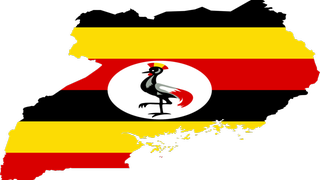
Where the Scene Is Headed: Ugandan Football Is Alive and Kicking
Although Uganda has never qualified for the World Cup, it is experiencing a resurgence in continental and club-level football. A decade ago, the state of football in Uganda was far less promising.
Due to longstanding internal conflicts between the Federation of Uganda Football Associations (FUFA) and some of its most influential clubs, as well as incidents of match-fixing and economic challenges, supporters and sponsors have justifiably abandoned the organization in recent years.
FUFA's reputation had reached an all-time low, with the general public expressing little confidence in the organization, while football enthusiasts in Uganda increasingly gravitated towards the English Premier League and eplfantasy leagues.
What is the current state of Ugandan football?
As of right now, Ugandan football appears to be flourishing and achieving greater success at the international level. The national U20 male team qualified for the 2023 U-20 Africa Cup, while the senior women's national team won the CECAFA competition and secured a spot in the African Women’s Cup. In recent times, Uganda has taken significant strides towards establishing itself as a rising dominant force in the global arena of football.
The fanbase for football in Uganda has been steadily growing, as improved relationships between enthusiasts and club management have led to increased engagement from sponsors. Currently, there are more than 40 sponsors engaged with the UPL, as the sport seeks to restore its reputation. Domestic football in Uganda is thriving, with many regions across the country experiencing a revival of interest in the sport, beyond just the greater city of Kampala, where football has traditionally been most prevalent.
Indeed, there are a number of current issues facing football in Uganda, such as concerns regarding players' welfare. However, there has been a notable shift in the perception of the sport at the national level in recent years, with a growing appreciation for its cultural and economic significance.
Coexistence of EPL and UPL
In addition to the increased interest in Ugandan football, there appears to be a more balanced coexistence between the EPL and UPL, according to marketing professionals. Passionate fans of the sport now prefer to attend live football events in Uganda, rather than watching EPL games on television, which was not the case in previous years.
There is also a growing sense of "culture" among football fandoms in Uganda, with a strong ritualistic element to their identities and a deep sense of pride associated with supporting a particular team.
Wearing the shirts of one's favorite team has become an increasingly popular practice among football fans in Uganda, partly due to a local "wear your local jersey" initiative and other promotional campaigns. Fans are also showing a greater willingness to spend money on merchandise, and there is a growing demand for detailed information such as player and team statistics, which is particularly relevant for those who bet on the sport.
Uganda is not the only African country experiencing a football revolution of sorts, as similar developments have been observed in Tanzania, Rwanda, and many other countries. Furthermore, it is not just the football market that is expanding in Uganda; the entire sports sector is experiencing growth, including basketball, rugby, boxing, and other sports.
With many sponsors beginning to regain trust in the football sector and renewing their engagements, it is clear that this is one of the key drivers behind the rapid growth of the industry as a whole.
In conclusion, it is clear that Ugandan football, despite its difficult past, is alive and well and poised to continue growing in popularity alongside other sports in the future.
Despite the strained relationship between the public and private sports sectors in Uganda in the past, they are now beginning to rebuild trust and establish a more professional working connection.
This is due in part to the growing enthusiasm among fans, who are developing a strong culture around supporting their teams, betting on the sport, and buying merchandise. As a result, the future of sports in Uganda is looking increasingly promising.
Sponsored content


